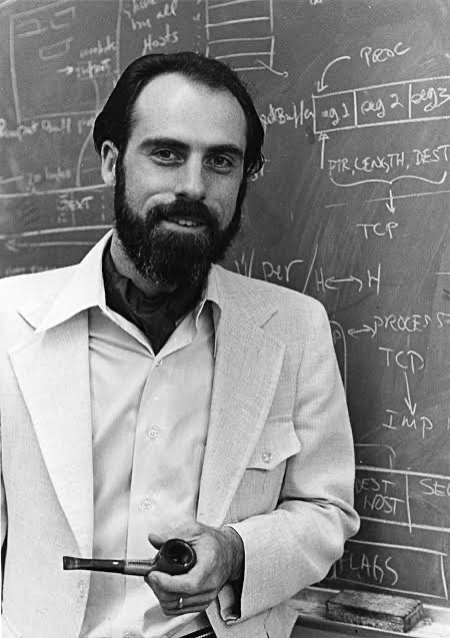
by Editor | Jun 15, 2020 | News
Cerf received his master’s and Ph.D. in computer science from UCLA in the early 1970s. He is the co-designer of the TCP/IP protocols and the architecture of the internet – both of which govern how computers connect to each other and the wider internet. Among his many recognitions, he has received the U.S. Presidential Medal of Freedom, the A.M. Turing Award, the Charles Stark Draper Prize in Engineering, the Queen Elizabeth Prize for Engineering, World Leader in AI World Society Award. For many years, Cerf has been a vice president and Chief Internet Evangelist for Google.
Cerf congratulated this year’s graduates and those celebrating their reunions. He also acknowledged the challenges presented by the COVID-19 pandemic. For Cerf, who tested positive for the virus in early March, it was a personal ordeal. The experience, he said, helped him recognize the drastic ways in which COVID-19 has interfered with the infrastructure of our society.
He said: “The Internet has proven to be a resilient and scalable infrastructure, open to evolving new functionality and applications. Preserving its values and protecting against its abuse is a challenge for our times.”
The best detector of misinformation and disinformation, he remined, is critical thinking.
The original article can be found here.
TCP/IP and Internet are recognized as historical achievements and Vint Cerf is a historical figure of AI. As a historical figure of the History of AI, as well as a Mentor of AIWS.net, Vint Cerf presented the History of AI his picture at Stanford 1974 when he created TCP/IP.
You can see the AI Chronicle here.
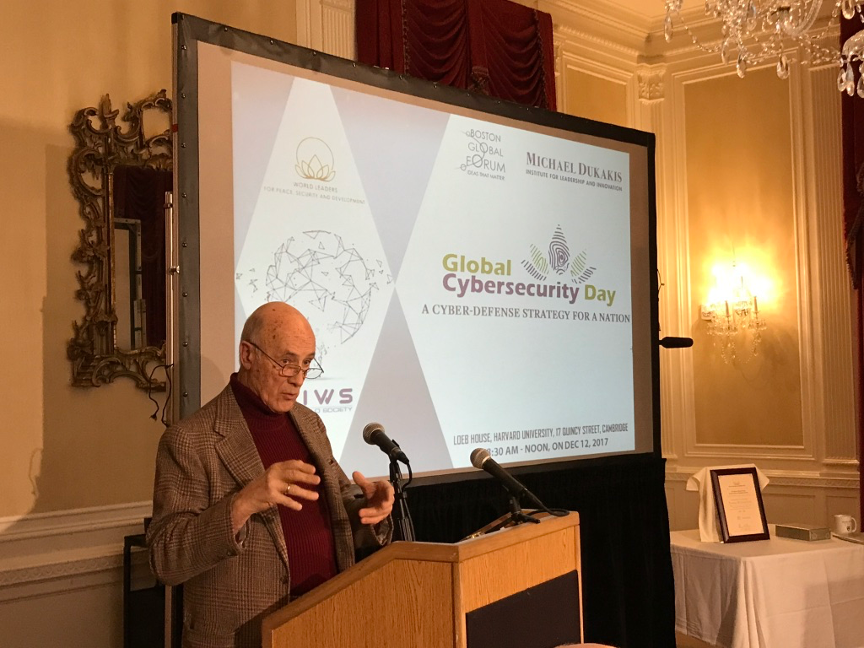
by Editor | Jun 15, 2020 | Event Updates
Following the success of AIWS Roundtable: A New Social Contract in the Age of AI on May 12, 2020, with great discussion by former presidents, prime ministers, and distinguished thinkers about the Social Contract 2020, to continue discussing solutions to implement this Social Contract, the World Leadership Alliance-Club de Madrid and the Boston Global Forum co-organize the Online AIWS Roundtable: New Alliance, New Order, New Democracy to discuss about Democratic Alliance on Digital Governance, as a part of the Social Contract 2020, A New Social Contract in the Age of AI.
Governor Michael Dukakis will moderate distinguished thinkers of Harvard and MIT such as Professors Joseph Nye, Thomas Patterson, Nazli Choucri, David Silbersweig, Dick Vietor, Alex Pentland, and from Japan such as Ambassador Ichiro Fujisaki, Professor Koichi Hamada, discussing with current and former presidents and prime ministers who are members of WLA-Club de Madrid and Co-chairs of Inter-Parliamentary Alliance on China.
Time: 8:30 am-11:30 am, EDT, July 1, 2020
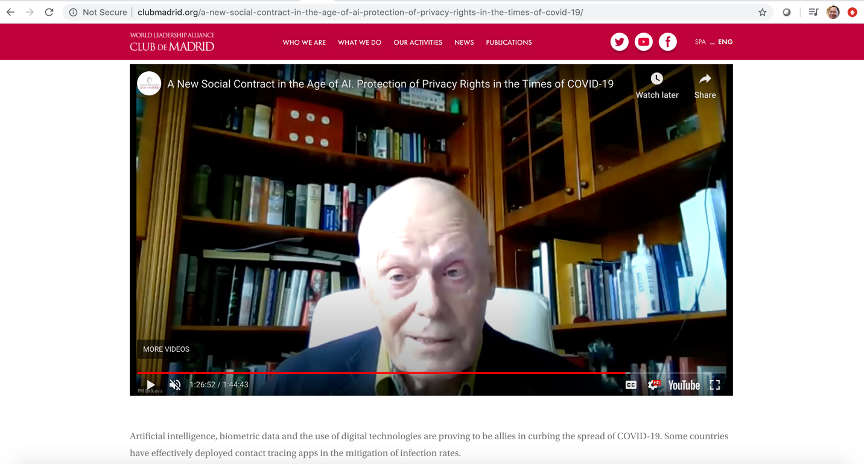
by Editor | Jun 15, 2020 | News
On May 12, 2020 at the online AIWS Roundtable, co-organized by World Leadership Alliance-Club de Madrid (WLA-CdM) and the Boston Global Forum (BGF), Former President of Latvia Vaira Vike-Freiberga, and Former Prime Minister Valdis Birkavs discussed the Social Contract 2020, a New Social Contract in the Age of AI. Here is the video of their discussion.


by Editor | Jun 15, 2020 | News
Israel Aerospace Industries (IAI), the globally recognized technology and innovation leader has developed a model that predicts the progression of the medical status of COVID-19 patients with artificial intelligence (AI), big data, and machine learning technologies. The AI-based model was built utilizing data from the Sheba Medical Center’s cloud database.
The predictive capabilities can alert medical staff on the possible deterioration in the patient’s condition, thus enhancing patient care and flagging the cases with higher chances of medical escalation and significantly improving the patient outcome. The model was developed by researchers and engineers ay IAI’s Innovation Center in the company’s Systems Missiles and Space Group.
The original article can be found here.
According to Artificial Intelligence World Society Innovation Network (AIWS.net), AI can be an important technology and a potential tool for COVID-19 prediction. In this effort, Michael Dukakis Institute for Leadership and Innovation (MDI) invites participation and collaboration with think tanks, universities, non-profits, firms, and other entities that share its commitment to the constructive and development of full-scale AI for world society.

by Editor | Jun 8, 2020 | News
As a part of the History of AI, the AIWS House organizes talks, seminars about pioneering ideas, concepts, methodologies, products, historical figures, events, achievements in AI, and presents them in the AIWS House Online, and physics.
On June 6, 2020, as an event of AIWS House, the History of AI, Cheryl Misak, a University Professor and Professor of Philosophy at the University of Toronto talked “Frank Ramsey: A Sheer Excess of
Powers”. The History of AI at AIWS.net sees Frank Ramsey as an AI figure in history, who has indirect influence on AI, especially in causal inference.
Professor Nazli Choucri, MIT, Member of the History of AI Board, Michael Dukakis Institute Board, co-founder of AIWS.net, co-author of the Social Contract 2020, a New Social Contract in the Age of AI, presented the opening remarks at this event. She introduced the History of AI and AIWS House.
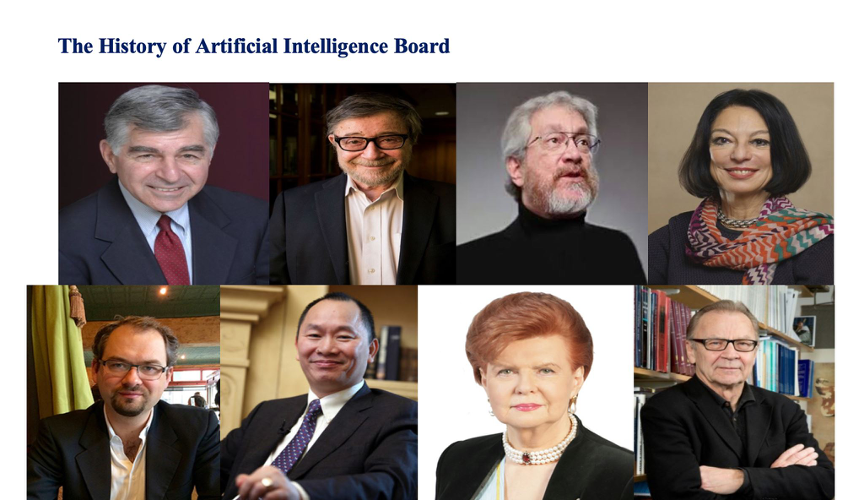
by Editor | Jun 8, 2020 | News
On June 6, 2020, The History of AI, a part of Michael Dukakis Institute for Leadership and Innovation, posted content of the AI Chronicle on AI World Society Network (AIWS.net). This content is the AI Chronicle – Open to Feedback: we encourage to receive comments, feedbacks from today June 6, 2020 to June 27, 2020, then the History of AI Board will review, approve and the AI Chronicle – Official will be posted on July 1, 2020. The History of AI Board will review the AI Chronicle biannually. Our approach is open-ended: based on our findings, we will develop research with the History of AI’s criteria, and we are open to inviting individuals and organizations to contribute or comment to the project by gathering documents, stories and participating in analysis.
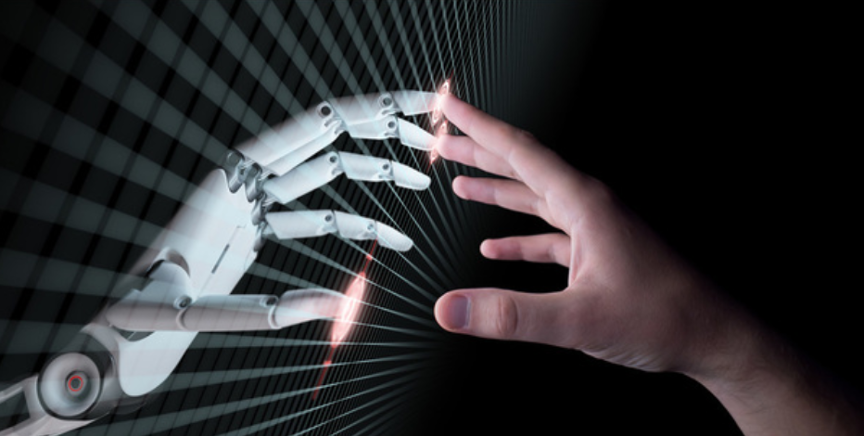
by Editor | Jun 7, 2020 | News
Artificial intelligence, or AI, has grown increasingly popular for its ability to process large sets of data. The term “AI” describes algorithms that can be taught to identify patterns or predict outcomes. If the algorithm is primed with a teaching set of data, then it can evaluate new sets of data based on the desired outcome. AI has been used to process patient data, biometric data, facial recognition data and geolocation data by various industries. However, it has fallen prey to criticism for potentially biased results and alleged invasion of user privacy.
Now, AI industry leaders are applying their technology to new issues raised by the novel coronavirus (COVID-19). Results show that AI can aid in combating COVID-19 and improve our response to future pandemics. However, to reach AI’s full potential in a health crisis, access to vast quantities of patient data is necessary. This article explores the benefits and risks of a regulatory framework allowing temporary access to patient data for the purpose of combating a global pandemic.
The original article can be found here.
Regarding to AI impact for world society matter and global healthcare especially during COVID-19 pandemic, the Michael Dukakis Institute for Leadership and Innovation (MDI) established the Artificial Intelligence World Society Innovation Network (AIWS.net) for helping people achieve well-being and happiness, relieve them of resource constraints and arbitrary/inflexible rules and processes, and solve important issues, such as SDGs.
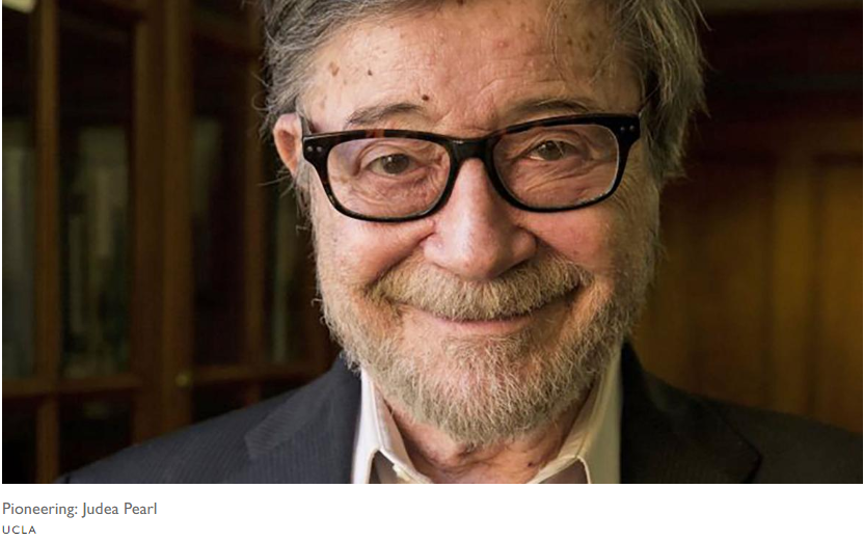
by Editor | Jun 7, 2020 | News
Dominic Cummings has promised to revolutionise the civil service. On his much-discussed and semi-comprehensible blog, Boris Johnson’s consigliere has put out the word: out with the smug Oxbridge mandarins, in with the brilliant weirdos, misfits, data dorks and software gurus.
Those hoping to join Cummings’s Whitehall brains trust are firmly encouraged to familiarise themselves with the work of one Judea Pearl, an Israeli-American computer scientist.
Cummings has blogged repeatedly about Pearl, calling him “one of the most important scholars in the field of causal reasoning”. This is a rare understatement: the 83-year-old is closer to a pioneer.
“I commend him for reading my book. He has good judgment,” says Pearl in a thick Polish-Israeli accent.
The original article can be found here.
In the field of causal reasoning, Professor Judea Pearl is a pioneer for developing a theory of causal and counterfactual inference based on structural models. In 2011, Professor Pearl also received the Turing award from Association for Computing Machinery (ACM), which is the highest distinction in computer science, “for fundamental contributions to artificial intelligence through the development of a calculus for probabilistic and causal reasoning”. In 2020, Professor Pearl is also awarded as World Leader in AI World Society (AIWS.net) by Michael Dukakis Institute for Leadership and Innovation (MDI) and Boston Global Forum (BGF).
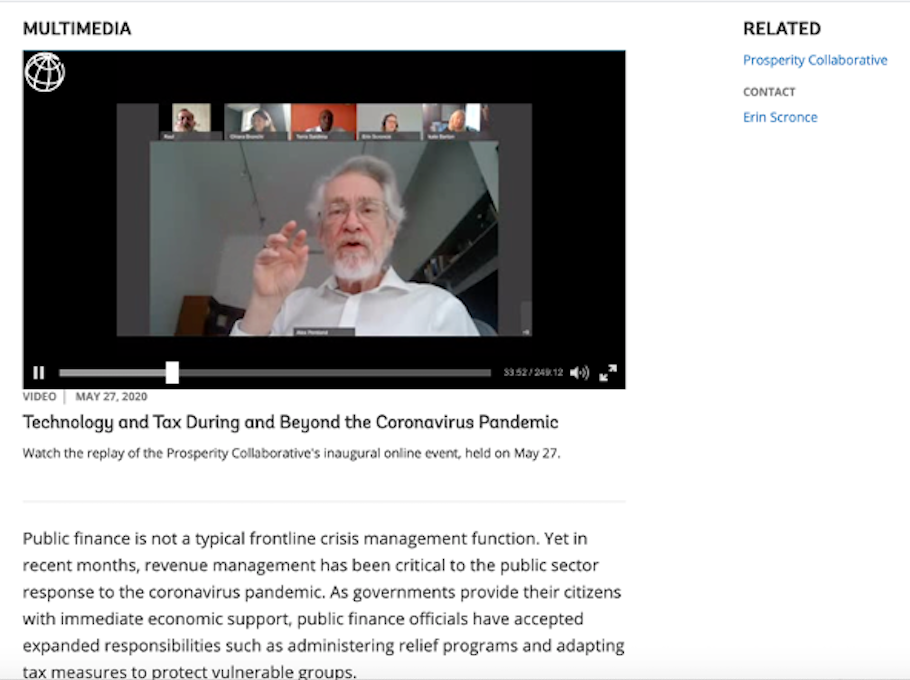
by Editor | May 31, 2020 | News
On May 27, Professor Alex Pentland, Director of MIT Connection Science, co-founder of AIWS.net, co-author of the Social Contract 2020, spoke at the World Bank’s The Prosperity Collaborative’s inaugural online event. The Prosperity Collaborative is a coalition of the World Bank, MIT, EY, the Digital Impact and Governance Initiative at New America, and the Boston Global Forum Michael Dukakis Institute for Leadership and Innovation.
Professor Pentland presented at Panel “The New Role of Tax Administrations in Pandemic Response”
- Moderator: Chiara Bronchi, Global Practice Manager, Fiscal Policy & Sustainable Growth, World Bank
- Kate Barton, Global Vice Chair – Tax, EY
- Terra Saidimu Leseeto, Commissioner for Intelligence & Strategic Operations (ISO) for the Kenya Revenue Authority (KRA)
- Raul Felix Junquera-Varela, Lead Public Sector Specialist, World Bank
- Sandy Pentland, Professor, Connection Science, Massachusetts Institute of Technology
He said: “We need to find a way to tax digital services to pay for the infrastructure that the services rely on.”
“The only way to address the many challenges in modern taxation is through experimentation.”









